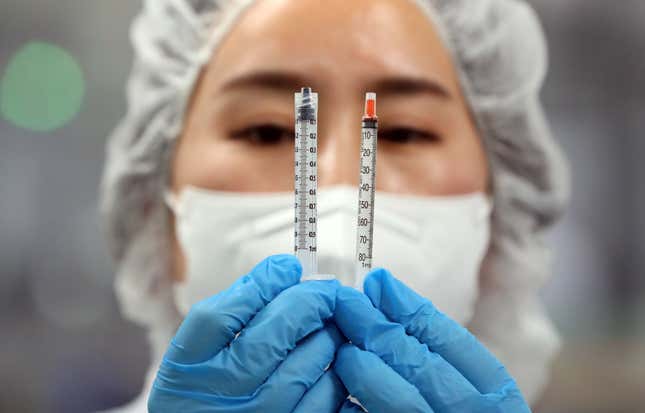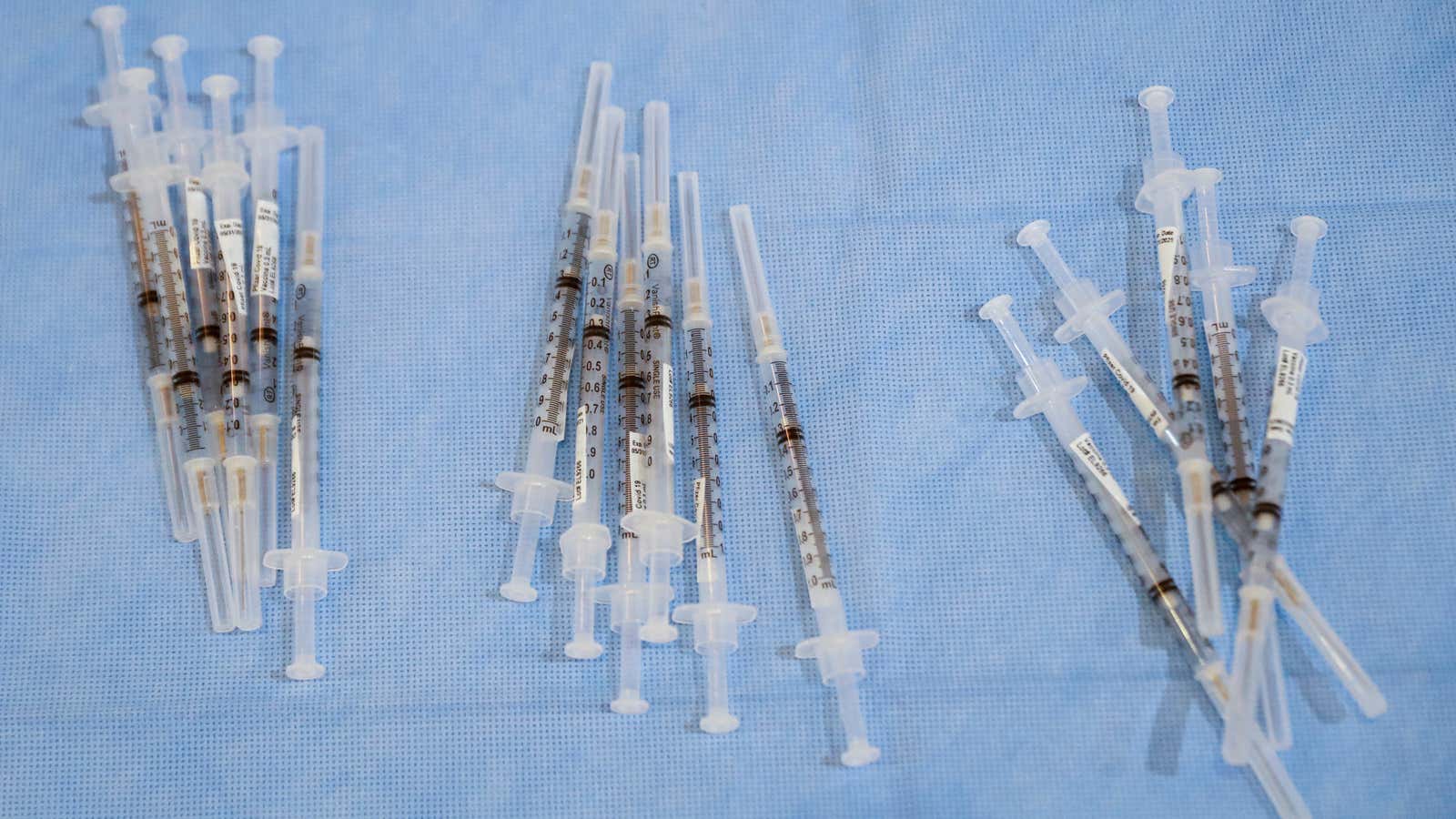As Pfizer-BioNTech began shipping out its Covid-19 vaccinations in the US in December, pharmacists administering the jabs noticed something peculiar: Each vial of vaccine, labeled to hold five doses, contained a little extra fluid—enough, in fact, for a sixth dose.
After getting clearance from the US Food and Drug Administration, the companies decided that this extra dose would count toward their dose commitments, meaning they could manufacture and ship fewer vials. There’s just one problem: Getting that sixth dose out of the vials often requires syringes that are in short supply. Without more of them, the global vaccination rollout could be stalled even further.
“Low-dead space syringes”
Normally, when a vaccine or medication is administered through a muscle, pharmacists plan for a little bit of the liquid in a vial to be wasted. That’s a feature, not a bug: Having extra in each vial ensures that, in the event of a mis-draw, there’s a buffer to make sure each recipient gets a complete dose. In most syringes, the “wasted” medication gets caught in an area called a “dead space”—it’s out of the vial, but doesn’t make it into a recipient’s arm. The difference is subtle, and has to do with the hub in between the barrel and the needle.
But Covid-19 vaccines are “like liquid gold,” says Tinglong Dai, a professor of healthcare operations at Johns Hopkins: You want to eliminate any waste. That’s why a lot of pharmacists and healthcare administrators have shifted to using low-dead space syringes, or LDS syringes. These syringes have virtually no dead space, so it’s easier to extract all six vaccine doses that Pfizer claims out of one vial.

LDS syringes aren’t nearly as common in medicine as standard-issue ones. They are primarily used in fertility or cancer treatments, where medication is extraordinarily expensive. Since no one anticipated the need for millions of these syringes to contend with Covid-19, Dai says, no one planned for them to be in short supply. Pfizer-BioNTech’s decision to re-label their vials as having six doses instead of five was unexpected, and is now making it harder for some vaccine administrators to extract all six doses from each vial they received. Pfizer did provide the US with 36 combinations of needles and syringes to get that last dose from vials, it hasn’t been enough.
Two weeks ago, the Japanese Ministry of Health stated that it will likely only be able to vaccine 60 million people instead of 72 million, assuming it can only get five doses per vial. South Korea’s government recently placed an order for 20 million LDS syringes per month from local company Poonglim Pharmatech, which partnered with Samsung Electronics in December to boost its manufacturing capabilities. In the US, the government has partnered with multiple companies to order more LDS syringes, Fortune reports—but even with additional funding, it’s not always possible for these companies to meet the demand.
Training over syringes
Where extra LDS syringes aren’t available, Dai sees a possible workaround: better training on medication extraction.
Seasoned pharmacists can get six doses out of a Pfizer-BioNTech vial using a regular syringe, he says. The problem is that not everyone has these skills. The fact that some administrators happen to be able to extract that sixth dose is why there have been so many extra vaccines left over from appointments, which pharmacists have been giving away to avoid waste.
Bringing all administrators up to speed with a little extra training is one way to make sure all vaccine vials are being completely emptied. Pfizer or the US Centers for Disease Control and Prevention could provide this kind of instruction to healthcare providers, Dai says. That would have benefits not just for Pfizer-BioNTech’s vaccines, but for all of them. And the applications go beyond Covid-19, too—less medical waste is always a good thing.
